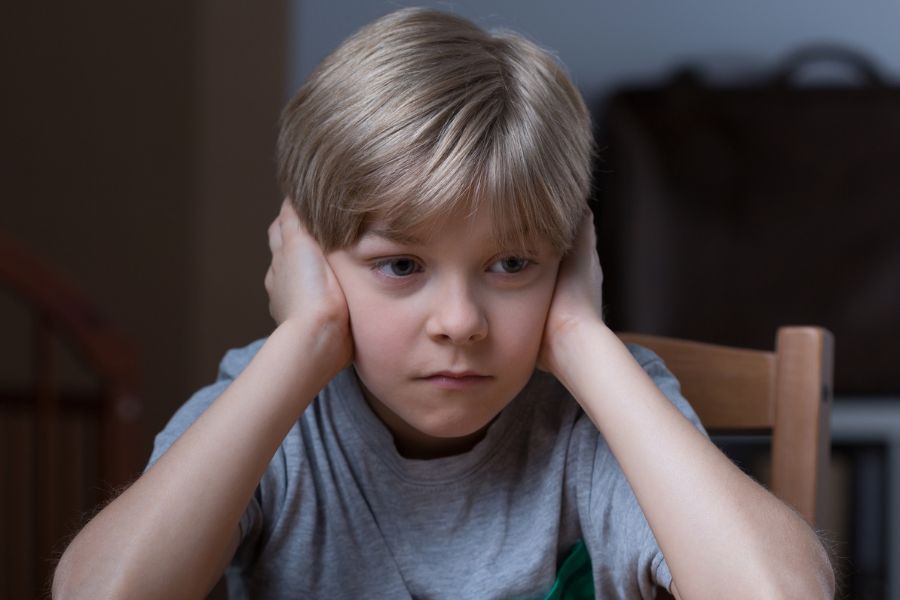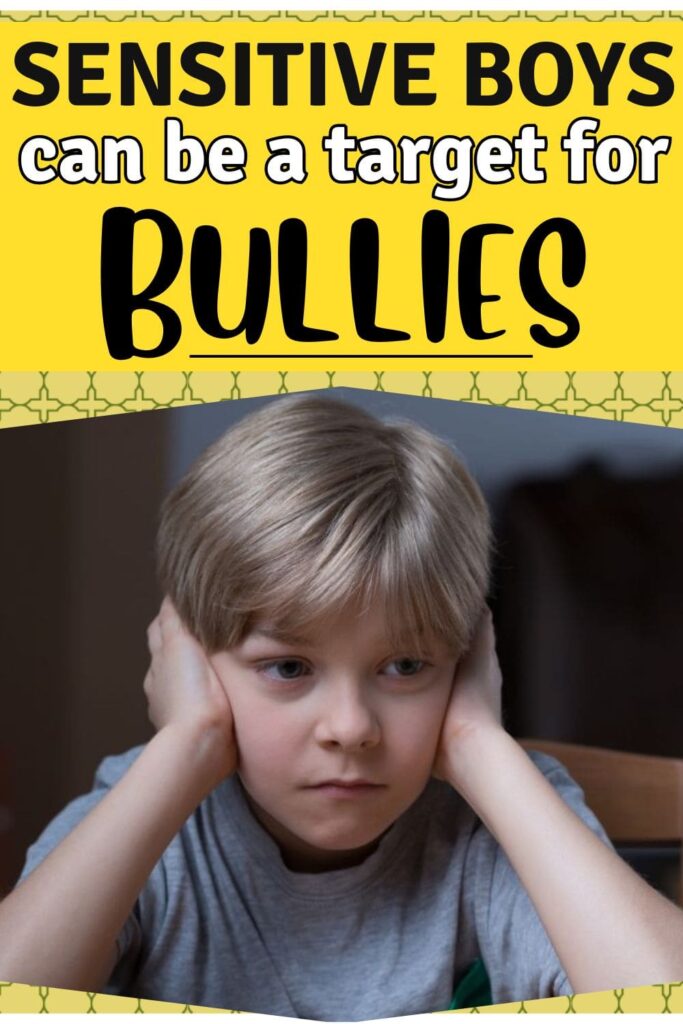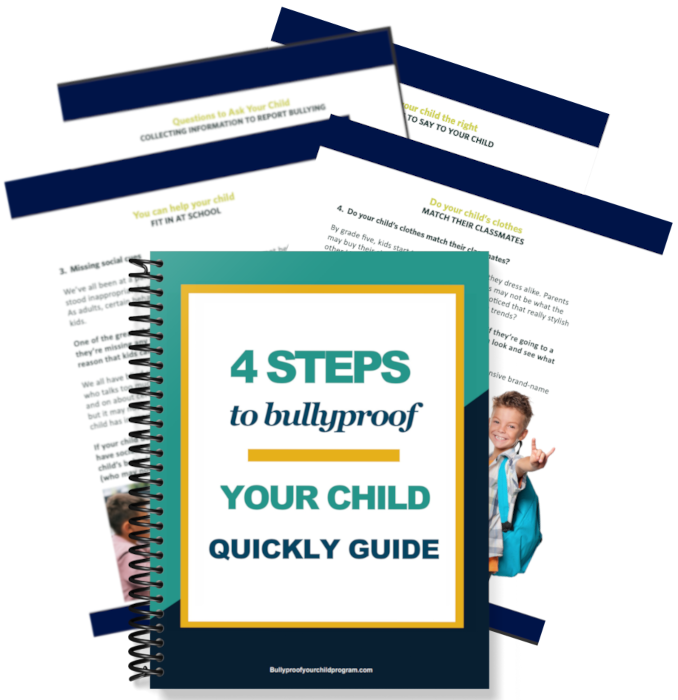
We all know That sensitive boys can be a common target for bullies. The world can be an unkind place, particularly for the tenderhearted – those we often call ‘sensitive boys.’ For these children, each emotion is profound, each word weighs more, and the highs and lows of life are felt with an intensity that others may never know.
This sensitivity is a double-edged sword; it’s what makes them empathetic and creative, yet also what can paint a target on their backs for bullies seeking someone who will react, someone who will show the impact of their words and actions.
This blog post is about understanding the inner world of a sensitive boy – recognizing their journey, the richness of their inner life, and the trials they may face in a culture that doesn’t always value their kind of strength.
We’ll dive into what makes sensitivity a superpower and how, as parents and caregivers, we can foster environments that celebrate and protect it.
We aim to empower these young souls to hold onto their sensitivity as a badge of honor, not a weakness, and to navigate the challenges of bullying with courage and support.
Understanding the Sensitive Boy
As a parent, or maybe as a sensitive boy yourself, you know being sensitive is like having a heart on your sleeve. It’s feeling the world deeply, in vivid colors and sounds that others might not notice.
This tenderness, it’s a gift, but it’s not always easy. Sometimes the world feels a bit too loud, a little too close. You might see things that others overlook, and feel things that others brush off. It’s like you’ve got this invisible antenna that picks up on everything – the good and the tough.
Understanding this, really getting the full picture of what it means to be a sensitive boy, is the first step in embracing it and finding your unique path through the noise.
Traits of Sensitivity
If you’re raising a sensitive boy, you’ll notice how they experience the world. They pick up on the little things, the quiet moods of a room, the unspoken words between people. They’re the ones who feel the highs and lows just a bit more intensely than everyone else.

Their empathy runs deep—they can’t help but soak up the feelings of those around them. And their minds? They’re bursting with creativity and imagination, painting the world in shades and stories others might never dream up.
This keen sense of perception, this gentle intuitiveness—it’s like they have a superpower for seeing the world’s hidden layers.
Challenges Faced
In a world that often shouts about being tough, being a sensitive boy can feel like you’re swimming against the current.
You might sense pressure, a push to be something you’re not, to tuck away those big feelings because that’s what you think you’re supposed to do. And that hurts.
It can make you feel alone like you’re the only one who sees the world through this particular lens, and it might even chip away at how you see yourself.
But you know what? If you’re the parent of a sensitive boy, you can be their safe harbor. A place where it’s more than okay to show all those rich feelings that color their world. Let them know that their sensitivity is a canvas, not a burden.
Teach them ways to ride the waves of their emotions, like taking a deep breath or finding peace in a quiet moment.
At the heart of it, being sensitive is a kind of superpower. It’s seeing the world with a caring eye and a loving heart that not everyone has. It’s what makes some people the best of friends, the deepest of thinkers, the truest of helpers.
This sensitivity – it’s not something to hide. It’s a gift to be nurtured, a trait that can help a boy grow into a man who’ll make the world a kinder, more understanding place.
More posts you might like
- What to say when your child is being excluded at school
- 7 Ways to boost your child’s confidence quickly
- 11 Ways to bully proof your child quickly
- Why won’t parents admit their child is a bully
Bullying Dynamics
Bullying, it’s like a dark cloud that can loom over a sensitive boy’s world. Seeing someone you care about being targeted because they feel deeply because they’re not afraid to show emotion, it’s heart-wrenching.
Bullies often zero in on sensitivity, mistaking kindness and empathy for weakness. This kind of hurt can leave deep marks on a sensitive boy’s heart, shaking their belief in themselves and the world around them.
As a parent or teacher, understanding this painful dynamic is crucial. Recognize how bullying cuts deeper for those who feel the world more intensely. By spotting the signs early and stepping in, you can shield them, and show them they’re not alone in this fight.
Why Bullies Target Sensitivity
It’s a harsh reality, isn’t it? Sensitive boys often find themselves in the crosshairs of bullies. Why? Because they stand out in their own unique way. Their sensitivity, this beautiful trait, somehow marks them in the eyes of a bully.
To someone looking to hurt, this sensitivity can wrongly seem like a sign of weakness, like they won’t fight back. It’s a cruel misjudgment, seeing gentleness as a vulnerability.
Bullies, they’re often chasing a feeling of power, wanting to control and dominate. And when a sensitive boy shows his feelings and reacts from his heart, the bully gets what they’re after – a sense of control, a twisted triumph.

Effects on the Sensitive Boy
You know, for a sensitive boy, the weight of bullying feels especially heavy. It’s not just words or actions against them; it hits deep, right in the heart.
Their sensitivity, which makes them so wonderfully empathetic and creative, can also mean that the hurt from bullying lingers longer and feels more intense.
The effects? They’re tough. The hurt from bullying doesn’t just bounce off; it can stick, creating shadows in their bright world. They might start to doubt themselves, feel scared, or alone. It’s like a cloud that doesn’t easily lift.
Some of the effects of bullying on sensitive boys may include:
- Anxiety
- Depression
- Low self-esteem
- Social isolation
- Difficulty concentrating
Bullying leaves marks that don’t fade easily, right? For a sensitive boy, these marks can etch into their story, into who they are, and sometimes even into who they become as grown-ups.
That’s why it’s so critical to step in early, to not let those bullying moments stack up until they’re too heavy to lift.
Knowing how bullying works, seeing the why and the how of it all, gives you the power to step in, to protect, to heal.
And it’s not just about stopping the bullies. It’s about building a world where sensitive boys, where all kids, really, can walk into a room with their heads held high, safe in the knowledge that who they are is not just okay—it’s celebrated.
That’s the kind of world we’re aiming for, and it starts with us, here, now.
More posts you may like
- When your child is being excluded by friends: Tips for parents
- When your child isn’t invited to a party
- When your child eats lunch alone
Teaching your child not to react
As a parent, it’s tough to see your sensitive boy with a target on his back just for being himself — for being open-hearted and kind. The key? It’s helping your child learn how to handle these situations with the right kind of reaction.
Teach your boy that it’s okay to stand firm, to hold onto his feelings without letting them spill over in ways that might invite more bullying. It’s not about not feeling — it’s about responding in a way that keeps him safe. It’s about showing strength in his calmness.

When you guide him in this, you’re not just helping him through a moment; you’re giving him skills for life.
The bully will try to trigger a sensitive boy
Seeing your sensitive boy get picked on by bullies is like watching a storm approach, and you’d do anything to stop it. Bullies have this way of pushing buttons, trying to get a rise out of their targets with harsh words or mean actions. They’re looking for a reaction, any reaction.
What you can do is teach your son the power of pause. Show him how to fill his lungs with a deep breath, to count to ten, to let that moment of hurt pass by without giving the bully the reaction they’re after.
It’s about giving him a moment to step back, to think, and to keep his inner peace intact. Encourage him that it’s okay, sometimes, to just walk away. There’s strength in choosing silence over a fight.
You can practice together, too—pretend you’re the bully and let him practice what he might say or do. It’ll give him a sense of readiness, a shield of confidence for when the real moment comes.
Teach him the gentle assertiveness of “I” statements. They’re like quiet little declarations of his feelings that don’t throw blame but stand firm. “I don’t like what you’re saying,” is a simple, powerful way to speak up for himself.
Moreover, he can say “I don’t like it when you call me names” instead of “You’re a mean person.”
Empower your boy with these tools, and he’ll stand taller, feel stronger, and know he’s got this—and you’ve got him.
And if things get too heavy, remind him there’s no shame in reaching out for help, that he’s never alone. Together, you’ll face this, one breath, one step, one day at a time.
Remember, it’s also important to address bullying behavior, but reacting with anger or aggression can often make the situation worse. Encourage your child to seek help from a trusted adult if they are being bullied, and remind them that they are not alone.
Strategies for Support
As a parent, your heart might be heavy knowing that your sensitive boy could face bullies. It’s a tough thought, and you’re ready to wrap him in your protection.
Here are some ways to stand by his side:
Building Resilience
Life throws some tough pitches, especially for your sensitive boy, and bullies can be one of the toughest. But what if you could teach him resilience, that inner strength that helps him stand back up, dust off, and smile at the challenge?
Here’s how you can nurture that mighty spirit in him:
Encourage them to pursue their interests and passions: Seeing your child dive into what they love – be it drawing, playing soccer, or collecting bugs – it’s like watching them light up from the inside. Encourage these passions. It’s in these moments of joy that they build a shield of confidence and resilience. When they’re engaged in activities they adore, they’re not just having fun; they’re crafting an armor of self-assurance that helps them face the world with a braver smile.
Teach them problem-solving skills: Guide them in spotting what’s wrong and brainstorming ways to fix it. This isn’t just about bullying; it’s about giving them a sense of control, a feeling that they’re not at the mercy of their problems. When they learn to think through issues and find solutions, that helplessness starts to fade, replaced by a growing sense of “I can handle this.”
Foster a growth mindset: When your child meets a challenge, it’s like they’re standing at a crossroads. One path says “Give Up” and the other says “Grow.” Teach them to take the ‘Grow’ path. Explain that every tough thing they face is a chance to get stronger, smarter, and even more awesome. It’s not about facing a threat; it’s about growing into a mighty tree from a little seed. This way, they start to see the world in a hopeful light, and they feel tougher, ready to bounce back and learn from anything that comes their way.
Creating a Supportive Environment
When it comes to giving your child the best ground to stand on, think of it as crafting a space filled with understanding and encouragement.
Here’s how you can build that supportive world around them:Build a strong relationship with your child: In a world that can sometimes be unkind, your bond with your child is like a beacon of light. It’s so important for them to know, deep in their bones, that your love doesn’t waver — not even a little bit. That kind of rock-solid love you give? It wraps around them like the strongest armor, making them feel brave and sure. With that knowledge, they can face anything, because they know you’re with them, in the fiercest of storms or the brightest of days.

Teach empathy and kindness: In this journey of raising your child, one of the most precious lessons you can pass on is the power of kindness and respect. It’s like planting seeds in a garden — the more they understand how to treat others gently, the more compassion will bloom in their heart. This way, they not only steer clear from being hurtful themselves but also spread a little more light in their corner of the world.
Advocate for your child: When you see your child hurting from bullying, your protective instincts flare up – you’re ready to step in, to stand up for them. Let them see you speaking out, fighting their corner. It shows them they’re not alone, that they have a hero in their corner. Your voice, standing up for them, is a powerful reminder that they’re worth fighting for and that they have a right to feel safe and respected. Your advocacy doesn’t just shield them; it gives them strength, helping them feel secure and valued.
When you see your sensitive boy, you see strength waiting to be nurtured. By fostering resilience and wrapping him in a supportive family embrace, you help him grow stronger, and more self-assured.
This love and support you’re building at home, it’s his training ground, giving him the courage to face challenges at school, including bullying, without fear. You’re not just protecting him; you’re empowering him, helping him stand tall, knowing he’s got a team behind him—you.
Raising a sensitive boy requires a nurturing and supportive approach that values emotional expression and empathy. It is important to create a safe and inclusive environment that encourages open communication and validates his feelings.
Emphasizing positive male role models and teaching healthy ways to manage emotions can help him develop into a confident and compassionate individual. By challenging traditional gender stereotypes and promoting acceptance of diverse expressions of masculinity, we can empower sensitive boys to embrace their authentic selves and thrive in today’s society.



